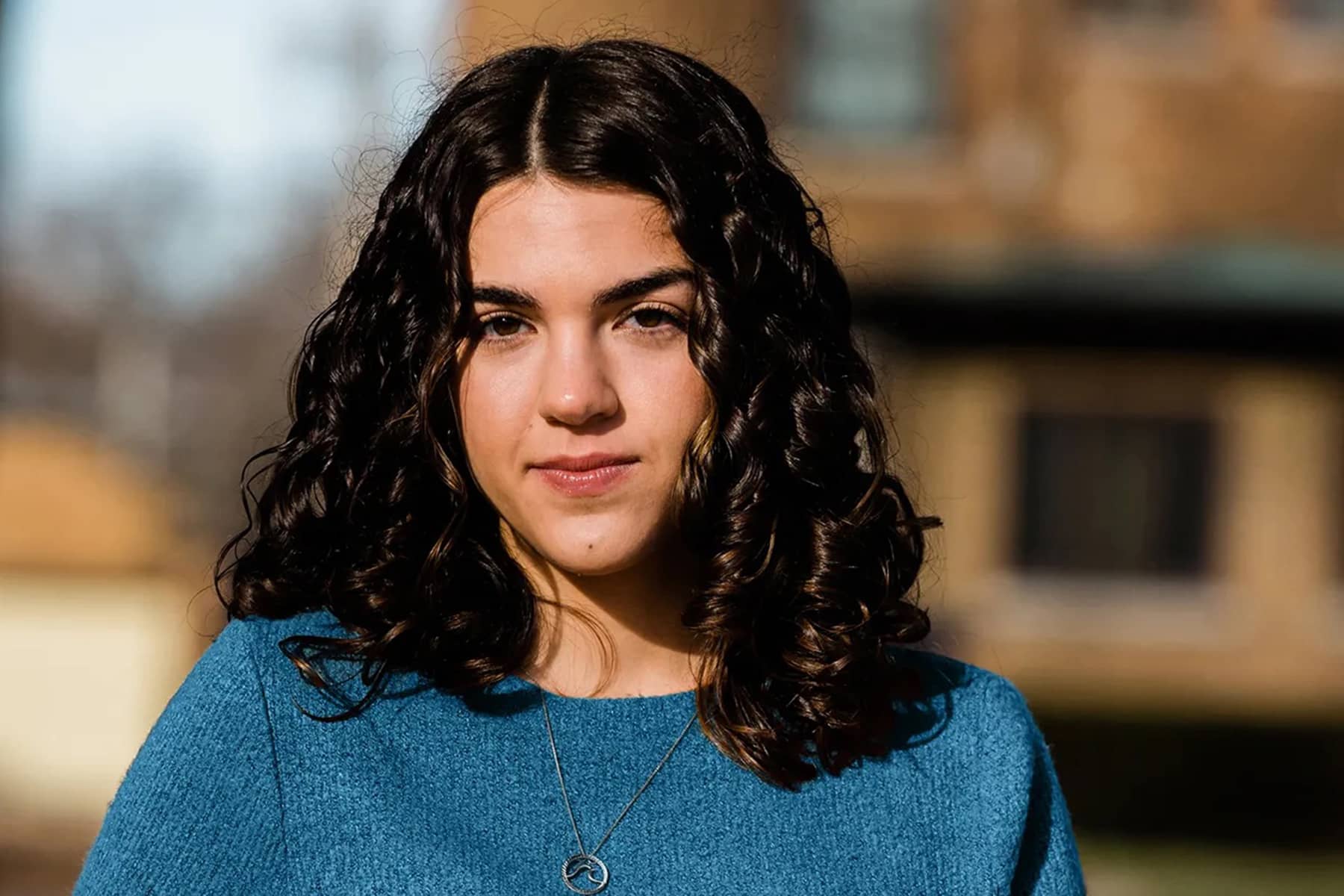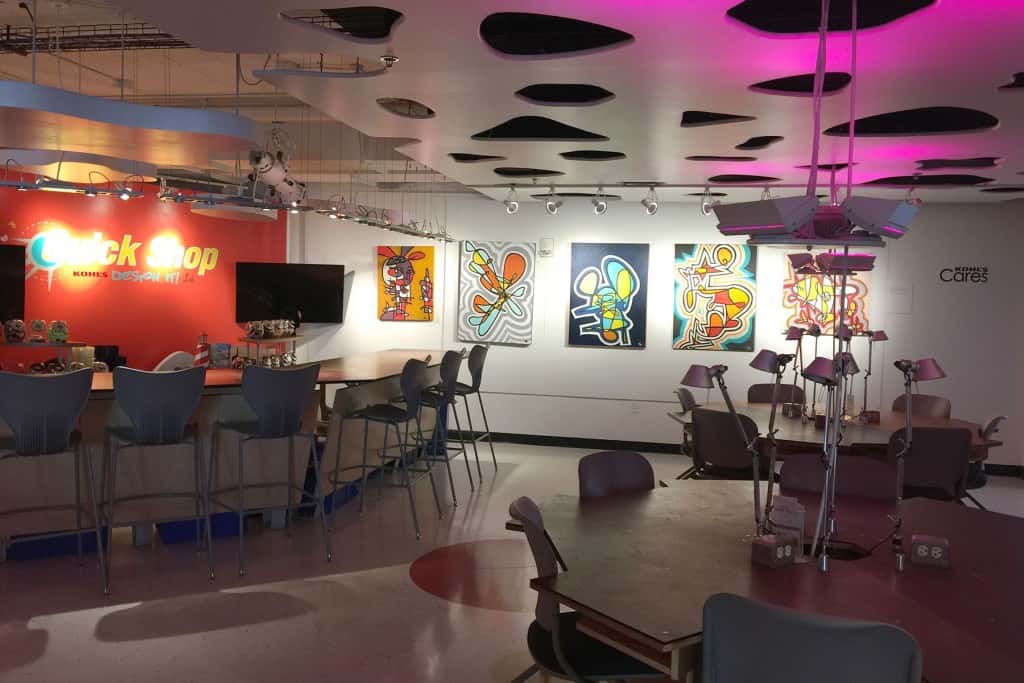
The first time I learned about the history of race and racism in America was during my first year of college, when I read Ta-Nehisi Coates’ book “Between the World and Me.” Before then, I had plenty of lessons on race, only none of them had ever happened in the classroom.
Growing up as a mixed-race Iranian American girl in the suburban Midwest, being the target of racism was as integral to my education as learning how to read. As a kid, my skin was much darker than it is today, and in my mostly White classroom, I was usually one of the brownest kids and undoubtedly the most hirsute.
My race has always been ambiguous, but my hairiness earned me the name “Bigfoot” from some of my classmates. Some who knew my racial background opted for more targeted insults, such as “terrorist” and “Muslim freak”—despite seeing me receive communion at weekly all-school mass.
These 18 years of “field experience” taught me everything I thought I needed to know about race. So when I sat at a roundtable at my predominantly White university during my freshman year to discuss Coates’ book, I felt like an expert.
Though the book is written as a letter from Coates to his teenage son about the realities of being Black in America, I felt my experience of facing racist name-calling in grade school combined with the fear associated with people of Middle Eastern descent gave me a level of understanding my classmates could never understand. They had to read Coates’ book to learn secondhand what they could never learn from experience. What was this book supposed to teach me that years of firsthand experience hadn’t already?
I kept this attitude through most of college. I had mastered the subject, and I understood what race and racism in America were all about. I believed in the importance of racial justice and held that conviction silently, but I didn’t need to read books or be an activist. That wasn’t my responsibility.
I was wrong.
In 2020, after the deaths of Breonna Taylor and George Floyd, I, like many people, was angry. Angry at the way people of color, and Black people especially, were being killed with no repercussions, incarcerated at alarming rates, and perpetually denied the promise of American meritocracy. But most of all, I was angry that White people just now seemed to be figuring out the racist nature of our society.
“Why do you care so much all of a sudden? Everyone’s acting like they just discovered racism,” I said. “It’s trendy now, but in a couple of weeks, no one is going to care.”
But my friend reassured me otherwise. “It just feels different this time. I can’t say what other people will do, but I know that I am not going to give up this time,” he promised.
Yeah right, I thought. Maybe these new “activists” would go to a protest or two, read a book, or watch a documentary, but the novelty would wear off in a month.
Wear off or not, they still put in work toward educating themselves, however brief that lesson was. Fighting for social change is still fighting for social change, even if it is short-lived. What had I done?
Nothing.
Experiencing racism isn’t doing anything to combat it. The experience is simply a byproduct of the system I never actually made the effort to counteract. How could I scoff and blame White people for just now starting to put effort into social justice when I hadn’t taken any steps myself?
In an attempt more to avoid hypocrisy than to educate myself, I read the book So You Want to Talk About Race by Ijeoma Oluo. I expected it to tell me things I already knew. Instead, it taught me I didn’t know anything.
Oluo writes, “When we identify where our privilege intersects with somebody else’s oppression, we’ll find our opportunities to make real change.” I had spent my whole life up to that point focused on the identities that denied me privilege, but lack of privilege in one area does not cancel out privilege enjoyed in another.
Though being a mixed-race Iranian American woman creates certain disadvantages, being half-White and generally presenting as White (in my adulthood), being able-bodied, and being from a middle-class family offer immense privileges. These privileges intersect with the systemic oppression of others, Black Americans in particular. A system I had mistaken to be black and white was actually layered with color.
In June 2020, I attended a Black Lives Matter protest in my hometown of St. Charles, Illinois. I and over 1,000 other protestors gathered in a downtown park across from my elementary school, the place I thought had taught me everything I needed to know about racism.
The demographics of the protesters matched that of my town: overwhelmingly White. We stood together in the same park where kids had made my skin color the basis of their taunts, but none of those memories mattered. As I marched beside my White neighbors, those experiences didn’t give me the upper hand. We all had a lot to learn, and I had just as much of a responsibility to learn it.
As a non-Black person of color, I wasn’t the only one to embrace a newfound call to action in the wake of the 2020 racial justice movements. From over 700 Japanese Americans signing a pledge to end anti-Black racism to Native American groups showing solidarity by attending protests, we collectively realized our role in combating racial injustice through myriad actions.
In May and June 2020, support for the Black Lives Matter movement in non-Black communities of color increased more than it did among White people. According to Civiqs data, from before Breonna Taylor’s death in March to after George Floyd’s in May, support for Black Lives Matter increased from 54% to 69% among the Hispanic and Latino population, and from 48% to 60% among all other non-Black communities of color, while among White people, support grew from 33% to 43%. I and other non-Black people of color realized we could no longer be complacent. We had to become accomplices.
Being an accomplice means committing to disrupting our current system of oppression. That disruption comes through education, actively listening to others, and accepting that we are far from experts. There was an uncomfortable confrontation that happened when I realized I could be both the oppressed and the oppressor. It’s an intersection I will always be navigating, but now I know where to find the tools to disrupt racial injustice and the courage to encourage others to do the same.
Since June 2020, I have tried to continue fighting for social justice in the communities I am part of. At my university, I worked with faculty to create a Writing for Protest group to encourage others to use their voices to write letters to the editor and to their representatives, and even to write creatively about social justice. Now that I have graduated, I seek out ways to get involved with equity, diversity, and inclusion initiatives in my workplace.
The activism journey is not linear. There are times I slip back to old comforts of indifference. Even now, as I write this essay, I am realizing how often I fall short in my activism. Enthusiasm for racial justice is waning; the same Civiqs poll shows that Hispanic and Latino support for Black Lives Matter has dropped 12 percentage points since June 2020, 9 percentage points among all other non-Black people of color, and 9 percentage points among White people.
Though these numbers reflect support for a single movement—the Movement for Black Lives—as activist Lilla Watson says, our liberation is intertwined. As non-Black people of color, we are not exempt from the responsibility to participate just because we have experienced oppression. While our experiences can be devastating, it’s time to recognize that the experience of being Black in America is an entirely different one that we will never truly understand.
Last year, marching drums pounded with demands for change. Today, they have ebbed to a gentle pulse, but I believe the steady beat is still there and that it requires a gradient of people to keep it alive. That means we must continue educating ourselves on racism in America, getting involved in our communities’ social justice efforts, and showing up in every way we can to make change.
Gabrielle Ghaderi
Аnjаlі Pіntо
Originally published by YES! Magazine as Unlearning Racism As a Non-Black Person of Color














